Surabaya, Indonesia
Public Participatory in 3R Waste Management for Better Surabaya
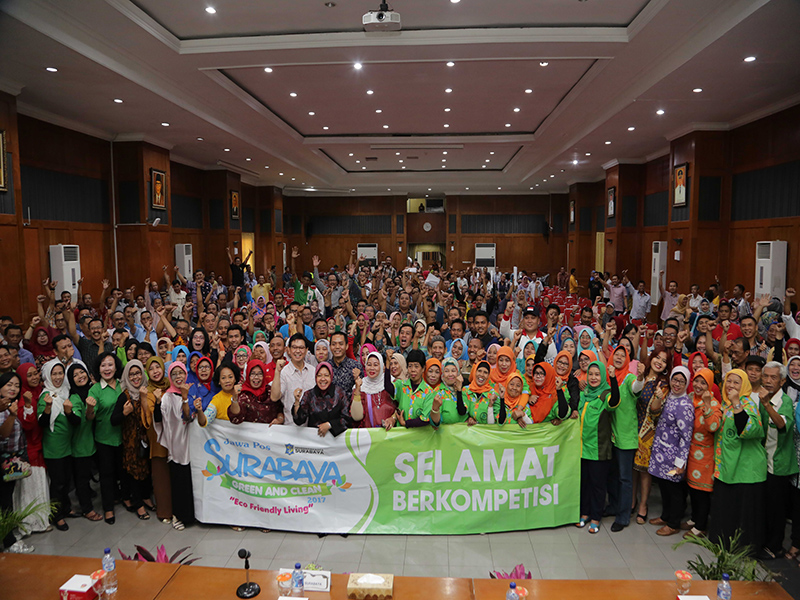
BASIC CITY DATA
Population size: 3,342,627
Population growth rate (%): 0.97
Surface area (sq.km): 334.51
Population density (people/sq.km): 9992.60
GDP per capita (USD): 12771.00
Main source of prosperity: Trade and Service
ABSTRACT
Environmental issue is not only the issue of government but the whole society. The first strategic initiative is building communication with the people, increasing their understanding and involving them to gradually take part in the movement as soon as possible.
A role model kampung was selected in working with an NGO supported by Corporate Social Responsibility program. Friendly ways in disposing of waste were introduced, such as 3R principles, composting at different scales from home to neighborhood, urban farming and wastewater treatment. As more and more people from other kampungs intend to learn from the successful kampung, "green facilitators" and "green cadres" were trained by the city government.
Waste banks that captures the economic value of waste are established in neighborhoods, public and private institutions. The main activities of the bank is buying and selling selected inorganic waste which is used as raw material for caps, bags, handicrafts, etc.
Waste collection and disposal is conducted in a two-tier system. Individual households take the waste from home to the transfer depot. Then the government will further transfer the waste from the transfer depot to the final disposal site and charge citizens of the waste treatment. To improve the performance of the depots, Surabaya worked with Kitakyushu City Government and built a Super Depot where waste is separated and sold to waste collectors based on the 3R principles. The waste depot manages waste in a more effective, efficient, and hygienic way than the conventional waste bank run by the community.
Waste Management Using 3R Principles
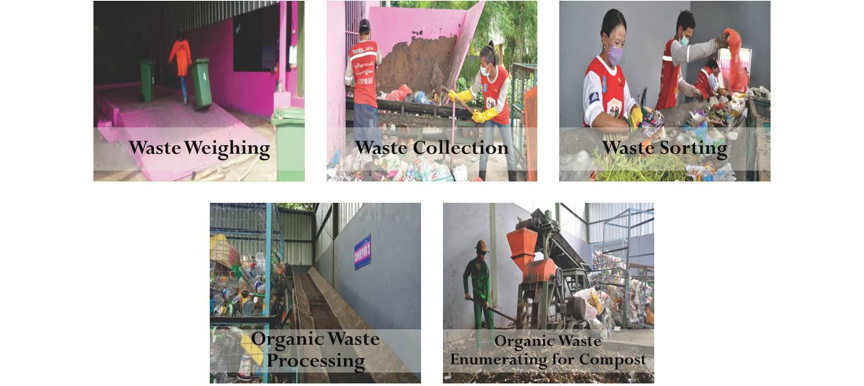
BACKGROUND INFORMATION
In response to the Stockholm Conference in 1972, towns and cities formulated their ways and reviewed annually to ensure that their green and clean efforts were the best way to safely dispose of waste for an improved green urban area. NGOs were invited to take active role in this process.
To ensure its legality, waste management decree was enacted by Ministry of Public Works and Public Housing No. 21-2016 and implemented by regional regulation No. 5-2014.
ORIGINS
With increasing amount of waste going to the landfill, waste issue attracted wider interest and was taken more seriously. Discussions were carried out on how waste management should be carried out, how to implement bigger-scale and innovative waste management, how to involve as many people as possible through community approaches, etc. In later date, Surabaya needs to do more in waste management with 3R (Reduce, Reuse, Recycle) approach.
Waste reduction from the source is the key to community-based waste management. Management were also combined with the application of appropriate technology. The larger goal of the initiative is to fulfill the stipulations of the environmental law. As Surabaya is always in the forefront of innovating waste management and responding to international issues, special effort was developed, from waste bank to the 3R transition waste depots. Both rely on waste selection, and attention was given to the plastic issue. Another innovation was working with plastic sheet users (various shops), waste collectors, waste banks and urban bus operators to allow waste to be used in increasing its value. The most unique innovation is the use of plastic water bottle and cups as payment for bus rides. This has enormous social and economic impact while improving the environmental quality.
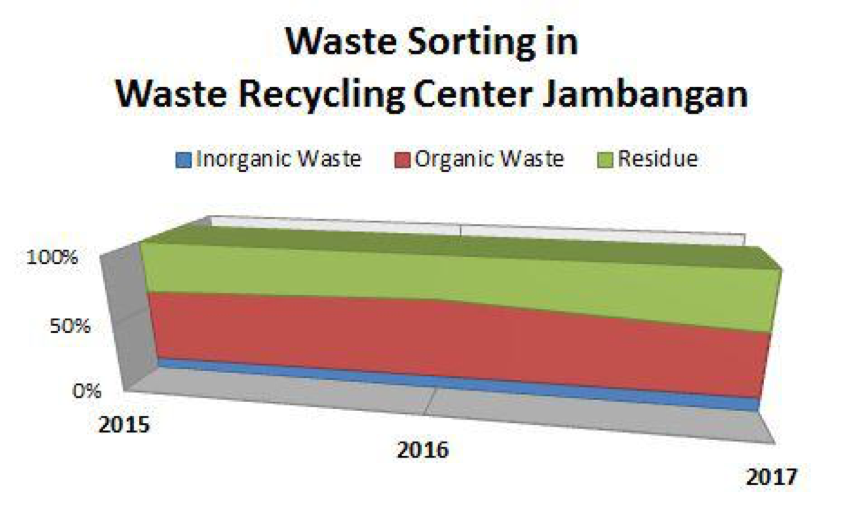
The innovation involved many parties. Basically, the city government played the planning and coordination role, leaving the rest to the people, from school children to women’s groups NGOs as well as waste collectors and factories that recycle plastic waste. It creates substantial work opportunity for the informal sector and third parties.
Public funding is limited to the overall and main urban waste disposal. The 3R program, local environmental work as well as collecting and selling plastic waste were done by the community and private sector, without any financial support from the city development. Thus, the role of the community is fundamental to the the success of the 3R Program, while Surabaya City Government takes the technical and managerial role.
INNOVATIVE ASPECTS
The initiative was developed evolutionarily based on the result achieved, evaluation as well as new challenges that have to be met. The 3R program was developed based on previous experience in waste management. Before this program, waste was just a pile of unused goods without any added value. However, after the program, waste becomes valuable both economicly and environmentally as waste was processed into compost and used in waste power plants.
The initiative is mainly implemented as a strategy to meet the assigned objectives and ensure a livable city for the aspiration of the people and the city government. Moreover, it is one of the action plans in Department of Cleanliness and Green Open Space in Surabaya City Government that have its own budget to implement.
Although implementation of the initiative has not met public resistantce, the publicity of the initiative is very crucial and needs special effort. Promotion, demonstration, and working with NGOs are extremely important. Surabaya City Government is committed to overcoming all obstacles, mainly the necessity to educate the public through workshops in order to raise people's awareness of waste sorting and the 3R principles.
DESIRED CHANGE OR OUTCOME
There are three main positive changes. First is the gradual participation of citizens: the number of environment cadres increased from 29,512 in 2014 to 30240 in 2015, and the number of active waste banks went up to 296 in 2017 from 220 in 2016 with 15,719 customers. Next is the improvement of the initiative itself from simple collection to organized management. It has also interlinked with the private sector as indicated by the increase in average revenue of waste banks from IDR 350,000 to 5,000,000. Last but not least is the prevention of waste entering the landfill. In 2016, 1.571 tons of waste went to the landfill, an increase of 6.3% only on that of 2015.
The greater impact of the implementation of 3R program is the improvement the quality of life through the improvement of clean and healthy lifestyle (from 70.67% households in 2015 to 75.07% households in 2016) as well as the improvement of air quality index (from 89.57 in 2016 to 90.26 in 2017).
Formal indicators stated in Surabaya Medium-Term Development Plan to assess the impact of implementation of 3R program is Index of the Quality of the Environment and Waste (IQEW). It measures weighted average of Solid Waste Index, Water Pollution Index, Air Pollution Index, and Green Cover Index. At the end of each fiscal year, Surabaya City Government delivers accountability report that contains achievement for the past year. IQEW in 2017 is 64.86, with an increase of 2.77 from 2016.
The main tool is the management tool that is simple and cost independent so that it can easily be enlarged and transferred to other places. Recently Surabaya City Government popularizes a new way to pay for Suroboyo Bus fare to get around the city using empty plastic bottles. The city also uses black solder fly to dispose of waste.
Gradually, the way the city includes ICT to manage its waste has been known to many cities in and outside the country, and many awards and recognitions have been received. One of the awards is Nobel City Award (Adipura) which they city has received for many times, and the most recent prestigious award is Special Mentions in Lee Kuan Yew City Prize 2018 along with Kazan, Russia; Hamburg, Germany; and Tokyo, Japan. After all, the most important thing is the success in involving its citizens to jointly manage waste and in the end to build a livable city for all.
LEARNING ASPECTS
Surabaya has always been open for other towns and cities to learn its experience both from the government to what people is doing. Many civil-society groups visit Surabaya almost daily for many innovations that the city has implemented, but the most frequently visited is programs that deal with the environment and smart city. The success of Surabaya to engage people in the implementation of 3R program has been adopted and implemented widely in towns and cities throughout Indonesia. Moreover, many town and city administrations need to know the real situation in their respective areas and how best to do it.
RELEVANCE TO SUSTAINABLE DEVELOPMENT GOALS
Goal 3: Ensure healthy lives and promote well-being for all ages
Goal 5: Achieve gender equality and empower all women and girls
Goal 6: Ensure availability and sustainable management of water and sanitation for all
Goal 7: Ensure access to affordable, reliable, sustainable and modern energy for all
Goal 11: Make cities and human settlements inclusive, safe, resilient and sustainable
Target 6: Improve air quality and manage municipal and other wastes
Goal 13: Take urgent action to combat climate change and its impacts
-
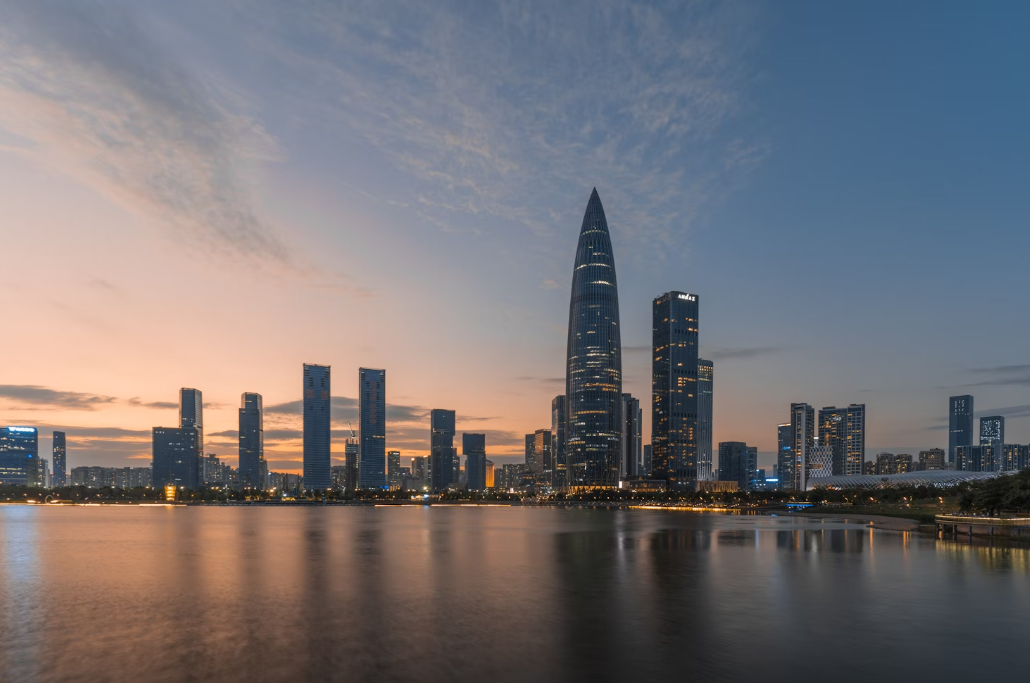 Urban Innovation in China | Shenzhen: How to Maintain Momentum to Achieve Carbon Peak by 2030 While Leading Green and Low-Carbon Development?
Urban Innovation in China | Shenzhen: How to Maintain Momentum to Achieve Carbon Peak by 2030 While Leading Green and Low-Carbon Development? -
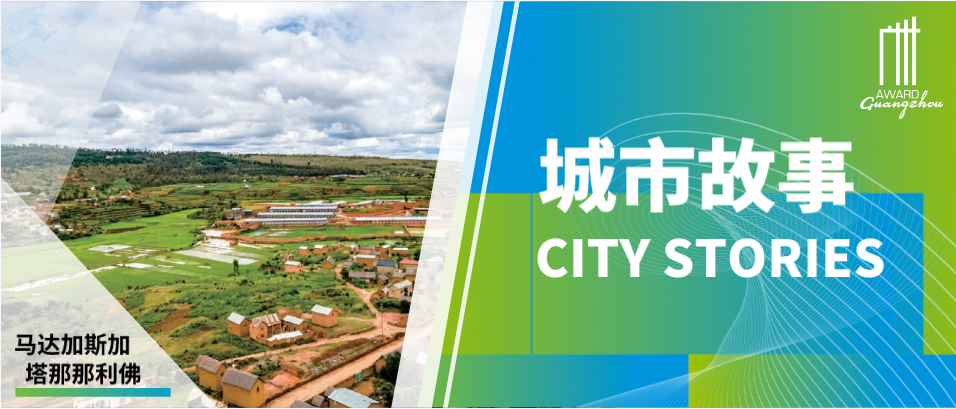 City Stories | Antananarivo, Madagascar: Building Resilience in the City Food System
City Stories | Antananarivo, Madagascar: Building Resilience in the City Food System -
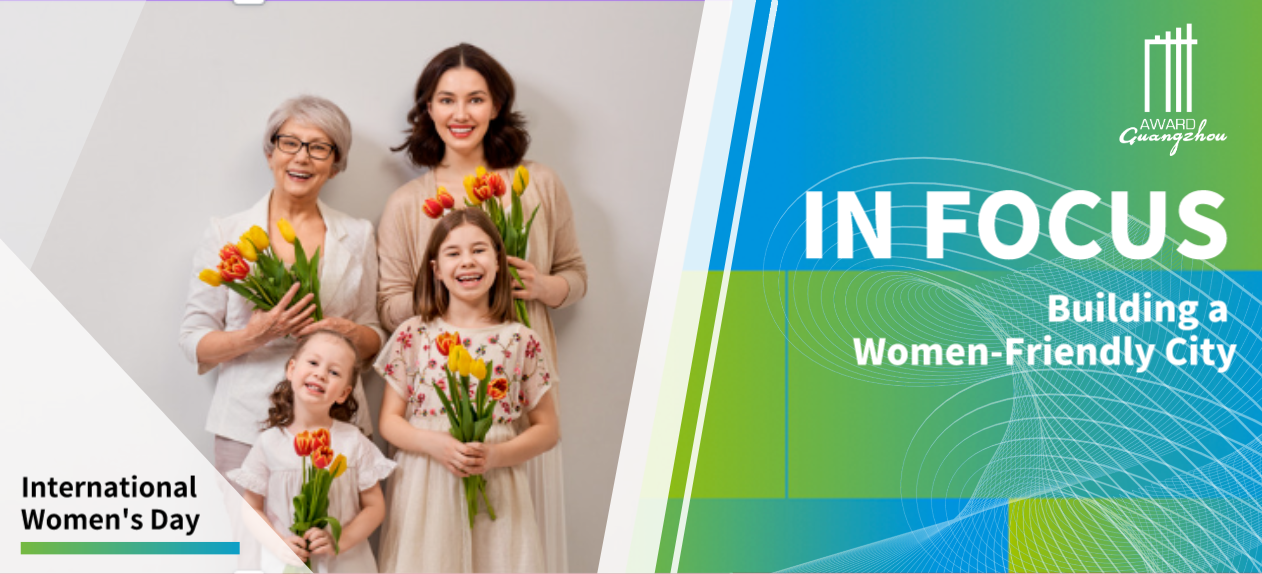 In Focus | International Women’s Day: Building a Women-Friendly City
In Focus | International Women’s Day: Building a Women-Friendly City -
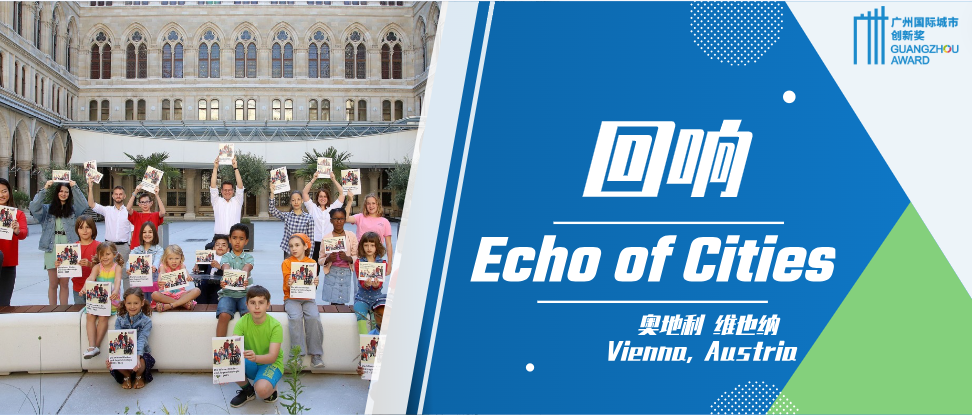 Echo of Cities | Vienna, Austria: The Youth Melody of an Ancient City
Echo of Cities | Vienna, Austria: The Youth Melody of an Ancient City























 Tel: +86 20 3780 4434
Tel: +86 20 3780 4434 Email: info@guangzhouaward.org
Email: info@guangzhouaward.org Address: Rm 1609, FuLiXinTianDi, No.307 Guangzhou Dadao Zhong, Yuexiu District, Guangzhou, Guangdong, 501600, PRC
Address: Rm 1609, FuLiXinTianDi, No.307 Guangzhou Dadao Zhong, Yuexiu District, Guangzhou, Guangdong, 501600, PRC




